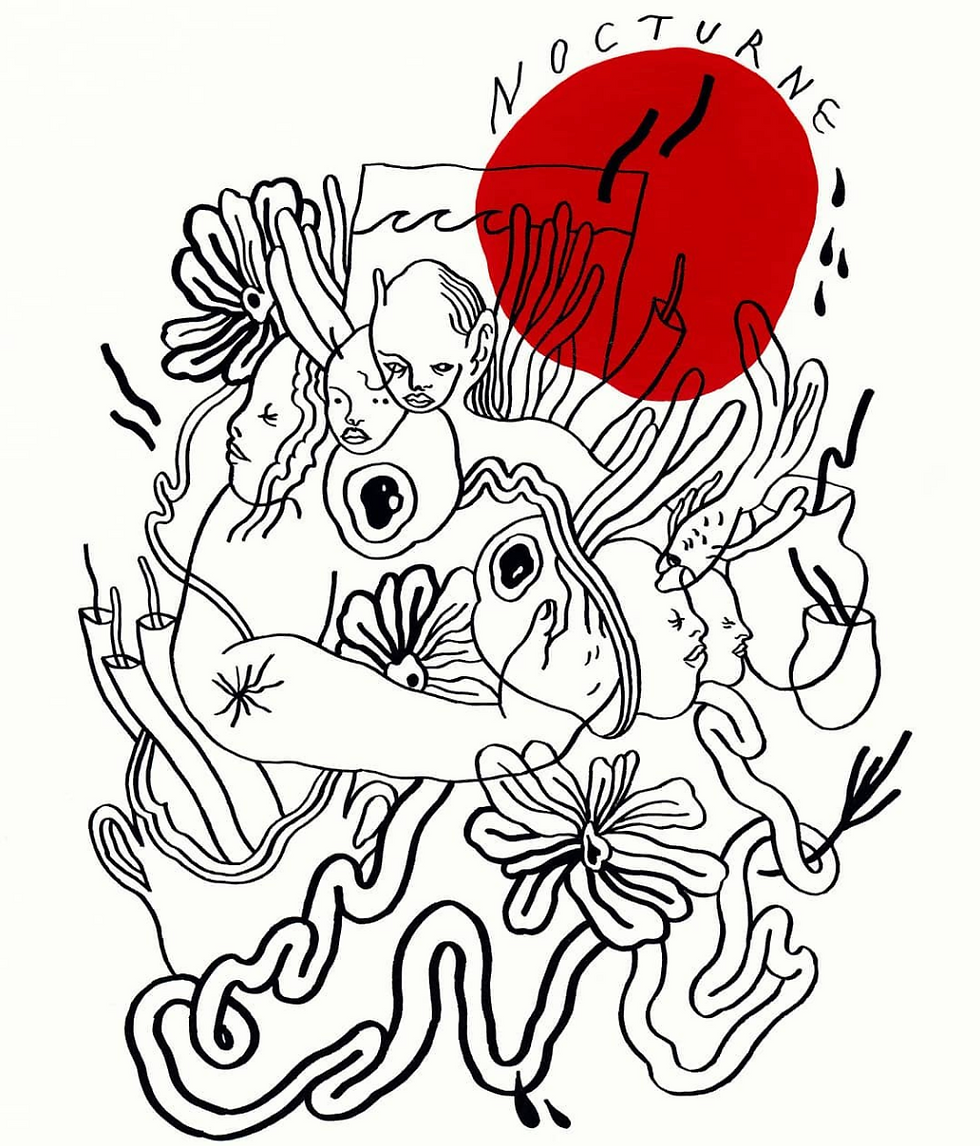Deja Vu Calling—They Want Their Book Back
- nehasa1819
- May 27, 2020
- 3 min read
Updated: Jul 19, 2020

Art by Ines J. (Instagram: @a.creature)
Marketers seem to realize quantitatively what we grasp intuitively. They tap into the nostalgia of familiarity with the whisper of a main character from years past...
Most New York Times Bestseller hopefuls can be weeded out within the first three pages. If a manuscript’s start piques the interest of a first reader, about twenty (or at the very most fifty) more pages will be read. At this point, a decision has to be made: will this book continue its fight to the top from the reject pile, or does it get a fast pass?
Publishing houses rely on this standard editorial practice to eliminate imitators and find the next big thing. But recently, it seems like many “copycats” have managed to find their way into personal libraries regardless.
In fact, crack open any of today’s literature, and you may find a chorus of vague doppelgängers struggling to please you on every page—regurgitating lines from Harry Potter, Twilight, The Perks of Being a Wallflower, or was it Looking for Alaska? Or maybe it wasn’t even young adult fiction, something higher quality… Kafka on the Shore? Atonement?
But this book, you think to yourself. This book will be different.
Only after an extended break from reading did I realize why so many similar books were published even after failing to endure the three-page rule. Familiarity comforts, and comfort sells. After a long day, I don’t want to be thrown into an anxious frenzy by my bedtime read—nor do I want something totally bland. Books girded by a familiar set of tropes fit just the bill.
Marketers seem to realize quantitatively what we grasp intuitively. They tap into the nostalgia of familiarity with the whisper of a main character from years past, drawing readers in with promises of an unexplored world whose outlines are just familiar enough to be anticipated.
After all, neither does uniqueness correspond to success on the other end of the spectrum.
Take virtually any film franchise as proof of this. Directors with simple camerawork and crass humor often crush the sales of art-house snobs, and the lore of fandom expectations tie the hands of many a screenwriter.
Daniel Pennac, author of Better Than Life, pens a Reader’s Bill of Rights as follows: “The right to not read; the right to skip pages; the right to not finish; the right to reread; the right to read anything; the right to escapism; the right to read anywhere; the right to browse; the right to read out loud; [and] the right to not defend your tastes”.
These rights place the reader as the central body of the literary world, suggesting that a body of work is only as good as the reader deems it to be. So how can writers evolve their craft while still satisfying the reader?
---
According to Dr. Audrey Farley, some of the most common themes in postmodern literature are “alienation, transformation, consumption, and the relativity of truth.” In theory, blending these themes with another subversive twist in genre, perspective, or language might unsettle the reader enough to make them think deeply while still preserving a degree of familiarity. And once an audience acclimates to those new elements, such keystone themes might be further modified. As long as such interaction between old and new remains, writers can evolve their work while remaining commercially relevant.
The word “subvert” comes from the Latin subertere, “to overthrow.” Despite this rather violent connotation, I’ve learned that in practice, it often denotes self-recovery. Recovery from the status quo, from unrealistic expectations, and from a false reality set by those in positions of power. In fact, when I returned to reading, I sought out these subversive works and found myself delving into the stories of those who do not often get the chance to be the main character.
That’s not to say subversive writing is always a grim discussion on societal change and morality. Perennial human themes like love, identity, coming of age, humor, and adventure are all common ingredients, and in this regard, writing can continue to advance with no excess allegiance to commercialism.
If anything, the negative reviews garnered lately by past successes’ imitations may indicate an even more extreme change of wind—a kind of knee-jerk anti-corporate trend. If that’s the case, then this reversal of loyalty to commercialized imitation is a fitting penalty for the decades of original creation lost. Let this new wave of writers nurtured by even extreme anti-traditionalism serve as a beacon of hope for both readers and writers alike.

Neha's picks of "subversive" books to accompany this piece:
The Best of Everything, by Rona Jaffe
Mr. Fox, by Helen Oyeyemi








![[The] Magical [in] Realism](https://static.wixstatic.com/media/f6b3b7_a5e2fea43a2f4f3aac6bfe2ab61193e3~mv2.jpg/v1/fill/w_980,h_653,al_c,q_85,usm_0.66_1.00_0.01,enc_avif,quality_auto/f6b3b7_a5e2fea43a2f4f3aac6bfe2ab61193e3~mv2.jpg)
Comments